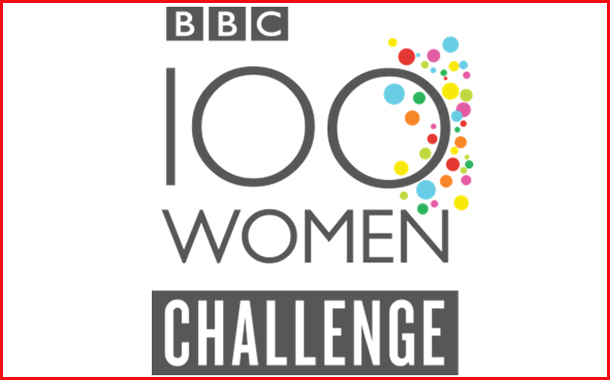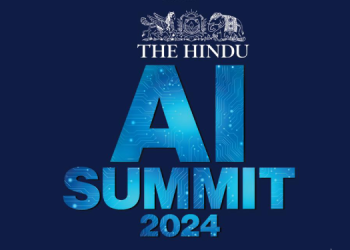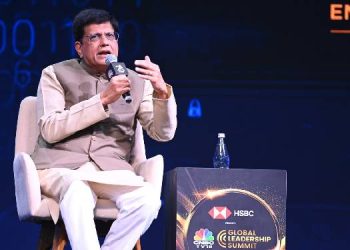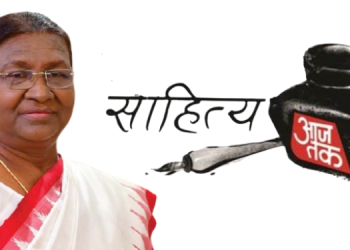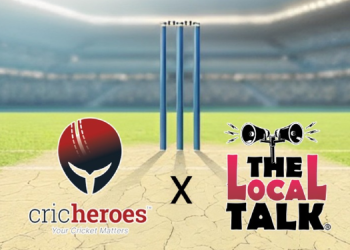Mumbai: The BBC has today launched its 100 Women season for 2017, with a unique celebration of female talent. Now in its fifth year, the season is again leading the charge by challenging women across the world to solve four global problems.
Starting in October, ‘100 Women Challenge: Change is coming’ will be drawing on the world’s wealth of female talent across all spheres of modern life – from engineering to the creative industries, from sport to business – as four teams tackle everyday problems currently blighting women’s lives across the globe. With help and inspiration from women who face these challenges daily, as well as star ambassadors and the BBC’s global audience, they will have a week to invent, develop and deliver a prototype. This could be a tech solution, product or campaign that tackles the issue.
The teams’ progress will be followed throughout each week on the BBC’s digital platforms. There will also be live shows marking the beginning and end of each project and content across all the BBC’s language services and its international TV news channel BBC World News.
Audience participation will be a cornerstone of the challenge. The teams will want to hear directly from women affected by the issues they are tackling and find out what solutions may have already been tried. Viewers and listeners will be able to get involved in the challenge via social media with @BBC100Women and #100Women, online at www.bbc.com/100women and through the live shows.
The 100 Women Challenge will begin in San Francisco on Monday October 2nd with the first team looking at breaking through the glass ceiling. The next team will be based in Delhi, tackling female illiteracy (October 9th – 13th), before the focus moves to Kenya, where a team in Nairobi will try to improve safety for women on public transport (October 16th-21st). And finally for the fourth week a team in Rio de Janeiro will take on sexism in sport (October 23rd – 28th).
But the 100 Women season would not be complete without the now famous 100 Women List. In 2016 it included singer-songwriter Alicia Keys; US gold medal winning gymnast, Simone Biles; French politician RachidaDati and Chairman of Santander UK Baroness ShritiVadera among others. This year the list will celebrate the women around the world trying to tackle the problems highlighted in the season. And in a new twist, while 60 women have already have been identified, the remaining 40 places will be filled by those who have supported, inspired and helped the teams on the ground over the course of the weeks. They might be someone working on a solution on the other side of the world; the woman who suggested the piece of code; the woman who named the campaign; or the woman who, by courageously sharing her story, inspired the solution.
Alongside the 100 Women Challenge, additional content will bebroadcast throughout October and into the autumn across all the BBC’s language services and BBC World News, ranging from short form news reports to documentaries. There will also be a wealth of digital content on www.bbc.com/100women such as opinion pieces by leading experts, personal stories, infographics and films.
Launching the fifth season of 100 Women, Director of World Service Group FrancescaUnsworth said, “Since its launch in 2013 it’s been fantastic to see 100 Women go from strength to strength. It has developed a life of its own, giving women a voice and ensuring the issues they face are kept front of mind. It has been such a privilege for us to be able to tell the stories of so many inspirational individuals giving them the global recognition they deserve. This year we are taking the project a step further, challenging some of the world’s top female experts to help find solutions to problems holding back the women of today. It’s an exciting and unique way to celebrate the talents of women and develop the 100 Women legacy with the help of the BBC’s global audience of nearly 350 million people.”
Fiona Crack, Editor of 100 Women added, “The message we’ve heard loud and clear from women across our audiences is that they want action, that it’s not just talking about issues anymore, it’s doing something about them. In 2015 women hosted 150 debates in 10 languages and 30 countries, in 2016 people added 450 deserving but over-looked women to Wikipedia, and now in 2017 we’re taking it to a whole new level of participation. It’s going to be exciting but nerve-racking to see what these talented 100 will come up with and if they can pull it off in a month.

